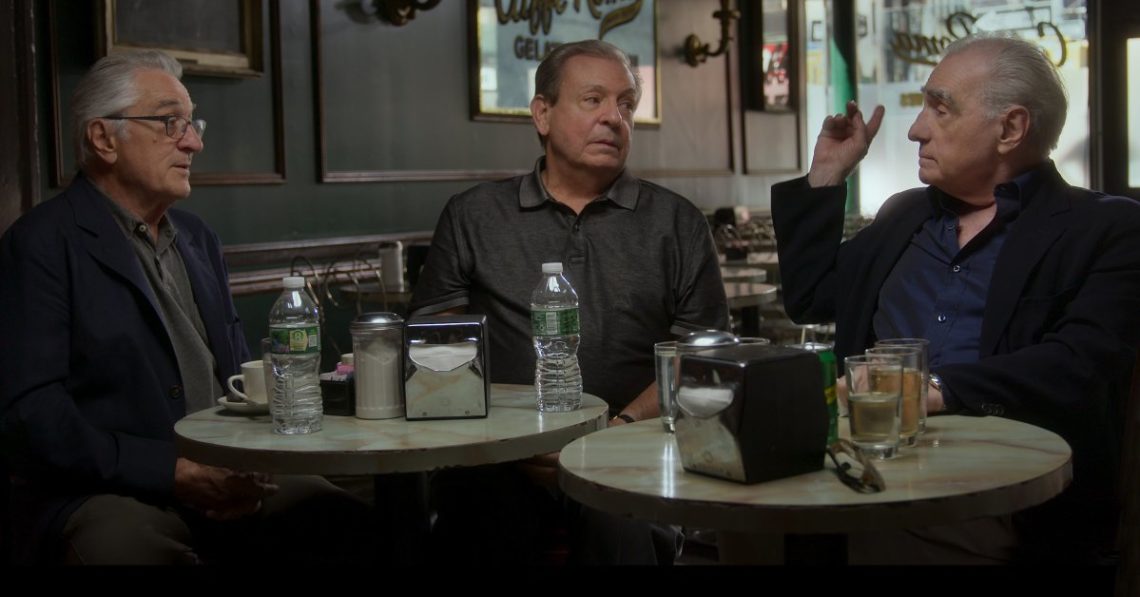Horror is ubiquitous on TV at this time of year, and those of us who love a good scare—myself very much included—usually look forward to it. Unfortunately, October 2025’s selection of IP expansions (IT: Welcome to Derry, Anne Rice’s Talamasca) and true crime murdersploitation left me mostly cold. You will find one worthwhile serial-killer story among this month’s highlights, though—plus a thriller with the deceptively spooky title Down Cemetery Road, a docudrama that resurrects Margaret Thatcher, an in-depth profile of a filmmaker who stares into the darkness of the human soul, and a dispatch from the delightfully unhinged brain of Tim Robinson.
Brian and Maggie (PBS)
We’ve gotten quite a few shows and movies, in the last few years, dissecting real telecasts from the annals of British news media. Prince Andrew’s disastrous 2019 Newsnight appearance yielded both a Netflix movie, Scoop, and an Amazon miniseries, A Very Royal Scandal. Princess Diana’s explosive Panorama interview, a major plot point in the 2013 biopic Diana, loomed large in the fifth season of The Crown. And now we’ve got Brian and Maggie, writer James Graham (a Crown alum) and director Stephen Frears’ (A Very English Scandal) two-part account of Labour MP turned journalist Brian Walden’s uncompromising 1989 interrogation of Margaret Thatcher, which helped to bring about the arch-conservative Prime Minister’s downfall.
You might well ask why this 90-minute series wasn’t a movie. American viewers are also liable to be confused by some of the political particulars. But Steve Coogan and Harriet Walter are both superb in nuanced lead roles; Walden’s alienation from his party and Thatcher’s isolation as a female striver surrounded by nepo noblemen go a long way towards explaining why they became so friendly, he crossed ethical lines to help her. Yet Walden’s hero turn in the second episode makes a strong case for the value of confrontational interviews with powerful politicians. Graham’s script is especially perceptive on the ideological clash between Thatcherism and the left. As one critic of the PM puts it: “We used to have communities, and now we just have stuff.”
The Chair Company (HBO)
Ron Trosper is losing it. The Chair Company, an HBO comedy that premieres on Oct. 12, traces the unraveling of this suburban family man, played by co-creator Tim Robinson, who believes he’s stumbled upon a criminal conspiracy following a minor workplace humiliation. But that conspiracy tends to manifest in the form of universal contemporary annoyances. “You can’t get a hold of anybody,” Ron rants after his investigation leads him into customer-service hell. “That’s the problem with the world today. People make garbage, and you can’t talk to anybody. You can’t complain, you can’t get an apology. I wanna scream at ’em!”
The character will be familiar to anyone who knows Robinson’s work. In his Netflix sketch show I Think You Should Leave and recent feature Friendship, the comedian portrays men who are hilariously, uncontrollably angry for reasons they don’t seem to fully understand. In his nitpicking and narcissism, the relatability of his grievances and his unhinged methods of redressing them, Ron also resembles a younger, Middle American version of Larry David’s Curb Your Enthusiasm antihero. He’s a great character—one portrayed with the explosive mix of awkwardness and rage Robinson has perfected and placed in situations that are funny because they’re absurd, but also because, despite their surreal trappings, they speak to modern discontents. It’s all just entertaining enough to make up for the show’s scattershot storytelling. [Read the full review.]
Devil in Disguise: John Wayne Gacy (Peacock)
Spooky season and TV’s insatiable true crime machine have converged in the streaming era to make October a veritable Halloween parade of docudramas about real-life psychos. This year’s crop includes Monster: Ed Gein, Murdaugh: Death in the Family, and The Monster of Florence. But unless you’re content to gawk at the goriest acts committed by the most twisted specimens of humanity—never mind the loved ones still, in some cases, mourning their victims—the only new addition to this morbid subgenre worth watching is Devil in Disguise: John Wayne Gacy.
Gacy was, of course, one of America’s most notorious serial killers, responsible for the rape and murder of more than 30 teen boys and young men. With his Midwestern-nice veneer and sideline in clowning, he certainly lends himself to the freakshow treatment—and Michael Chernus, as Gacy, believably embodies this particular incarnation of evil. Yet the real focus of Devil in Disguise is the victims, their families, and the classist, homophobic justice system that allowed him to prey on marginalized kids for so long. Clown makeup and slasher sequences are nowhere to be found in the series. Instead, showrunner Patrick Macmanus (who also co-helmed Hulu’s excellent The Girl From Plainville) intertwines the story of Gacy’s arrest, trial, and execution with generous flashbacks that introduce viewers to the young people whose lives he took, as they were before they encountered him. The show’s unsubtle dialogue can feel like a first draft. But overall, Devil in Disguise is a rare example of responsible true crime drama.
Down Cemetery Road (Apple TV)
In the premiere of Down Cemetery Road, a desperate woman walks into a private investigator’s office. “Let me guess,” says the detective, Zoë Boehm (Emma Thompson). “You’ve got a husband. He’s got a secretary. Am I warm?” She is not. Neither a film noir femme fatale nor a jealous housewife, Sarah Trafford (Ruth Wilson) has come to Oxford Investigations for help in solving a mystery that has little to do with her own life. Her initially inexplicable obsession sets the tone for Apple TV’s unusually humane conspiracy thriller. [Read the full review.]
Mr. Scorsese (Apple TV)
It’s always fascinating to see one great artist consider another. Over the course of a career spanning more than half a century, Martin Scorsese has directed essential documentaries on so many luminaries: Bob Dylan, the Rolling Stones, the Beatles, the Band, Elia Kazan, Fran Lebowitz, and the list goes on. Now, Rebecca Miller—the filmmaker, novelist, daughter of Arthur Miller, and wife of two-time Scorsese leading man Daniel Day-Lewis—has turned her lens on Marty, in an excellent five-part docuseries rightly framed as a “portrait.” It’s immediately clear that Miller was the ideal director for this project, wise about both the psychological toll of uncompromising artistry and the pain artists so often inflict on the people who love them.
Though it unfolds as a chronological biography, strung together via interviews with just about every relevant living person including the man himself, there’s nothing formulaic about Mr. Scorsese. Miller is less concerned with individual events than with tracing the evolution of the themes that define his life and work: power, subcultures, outsiders, religion, masculinity, violence, tumultuous romances, sin and salvation. To that end, she digs into each of his major films (and plenty of minor ones) in conversations with Scorsese and his most crucial collaborators, from Robert De Niro and Leonardo DiCaprio to Paul Schrader and Scorsese’s stalwart editor, Thelma Schoonmaker, who talks through the technical elements of classic scenes from her editing bay. Equally illuminating are the candid, often unflattering, reflections of his exes (including Isabella Rossellini) and daughters, who for decades took a back seat to his art-making and addictions. Taken together with Scorsese’s own unvarnished self-assessment, these conversations transcend Behind the Music clichés to create a portrait of the artist as a man whose path from brash enfant terrible to beloved eminence was paved with introspection.
The post The Best New TV Shows of October 2025 appeared first on TIME.




